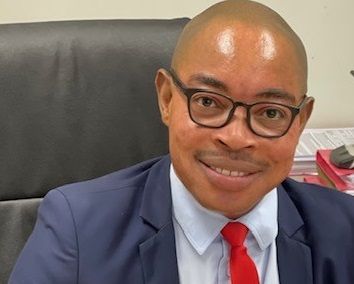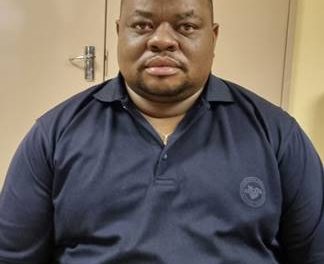
Police’s common sense failure dangerous

By Josef Kefas Sheehama.
Namibia is well known as a stable, democratic country, and is committed to stimulating economic growth and employment through foreign investment. However, there is a lack of trust in the police because of the unprofessional conduct, rudeness and violence of many officers.
The Namibian Police Force and the City of Windhoek Police need to be re-trained. Furthermore, dealing with officers who do not understand the law of the country and have unrealistic expectations can be frustrating. No one denies that police officers have highly stressful jobs but police officers attempting to maintain law and order cannot infringe our rights. From sergeants to the chief, every supervisor should get continuous and thorough training in leadership.
Effective leaders know how to communicate and connect with people. The current training focuses too much on firearm skills and omits vital exposure to non-lethal tactics. It doesn’t matter what triggers the event, it is law enforcement’s ability to respond and restore order that will have the greatest impact on community. The police officers must learn to use their common sense and discretion.
Police officers play a prominent role in society and wield immense authority and power. The proper degree of humility can help engender respect and trust from the public. We love Namibia, and we have no other to call our own. However, police officers should ensure that they work according to the rule of law. The priorities of police officers are to maintain public order, prevention and detection of crime, respect the rule of law, and to respect the dignity of human beings.
It is undeniable to anyone with common sense that Namibia’s justice system is massively flawed. No person is above the law and every person is equal before the law. Rule of law denotes equal protection of the law and the absence of arbitrary powers of law.
Lacking common sense:
A City Police operation on 14 January 2023 demonstrated a lack of common sense. These officers traumatised a child unnecessarily. Seeing a father arrested can cause mental and physical health problems and sleep disruptions. In a video now widely circulated the boy cries out “daddy”, as police cuff his father in front of him while quarrelling with the clearly intoxicated man. The small child is heard wailing “daddy” in distress as police yell out during the City Police operation. The officers could have handled the situation with a little more patience and professionalism.
The trend to a more professional police force has been underway for years but really needs to pick up speed in light of everything that’s happened. There are now countless videos showing civilians humiliated by inexperienced or violent officers.
The quality of officers in the force is a problem. The officers seem to have forgotten their priorities and primary assignment but instead engage in unproductive conduct. There is need for re-training of officers. The police officers have to realise that they are in the force for a reason, which stands at making Namibia safer and more secure, for economic growth and development, and also to create a safe and secure environment for all living in Namibia. We all have tremendous respect for the job.
But we all know, either from personal experience or the experience of someone close to us that there are officers who will violate citizens’ human rights and civil liberties with impunity and who are comfortable in the knowledge that the system will protect and cover for their actions.
Therefore, these inequities have led, inexorably, to the current national crisis in police community relations and the best way forward is to make sure we severely punish officers that violate the rights of the citizens they serve. They must be held accountable for their actions. We are not idiots. Many officers cover themselves in a narrative of heroism, sacrifice and risk whenever their actions are questioned. But, just because a person is an officer does not give him or her the right to maliciously injure the people that police officers are sworn to serve and protect.
The people were hoping democracy could guarantee freedom, liberty, and equality and enhance the security of lives, which are the panacea for the much-needed sustainable economic growth and development. It is important to note that respect for human rights remains inviolable over the performance of police duties and functions unless it is proven that the exercise of certain rights runs counter to the requirements of morality, law and public order, and the general welfare of the people.
Moreover, no one needs to give you these rights and no one is supposed to take them away or deprive you of these rights. Everywhere you go, your rights must be respected as you respect the rights of others.
Reform:
Operational and behavioural reforms are essential to the current crisis. There is need to reform law enforcement into a professional force. This would be better instead of establishing other support mechanisms that seem to perform similar operations. As it stands, there is only one way to improve the negative image already associated with the police officers is and that is for them to do their job like they are supposed to.
This will earn them their deserved respect and also ensure that the public retains belief in the police to do their jobs. The tense situation in Namibia is worrisome and it is even more devastating to know that the forces meant to make Namibia a safe and secure place seems to have lost it. Therefore, let’s not forget that before the name “policeman”, these people are just humans like us and they live in the same country.
To that end, it takes time for these wounds to heal. Only when police officers see themselves as part of the communities they operate in rather than enemy combatants, can Namibia end police brutality.












































